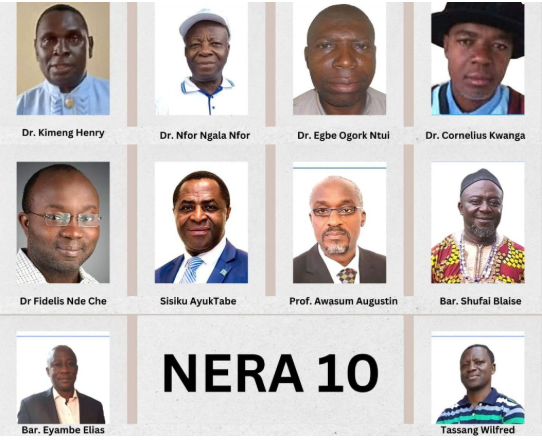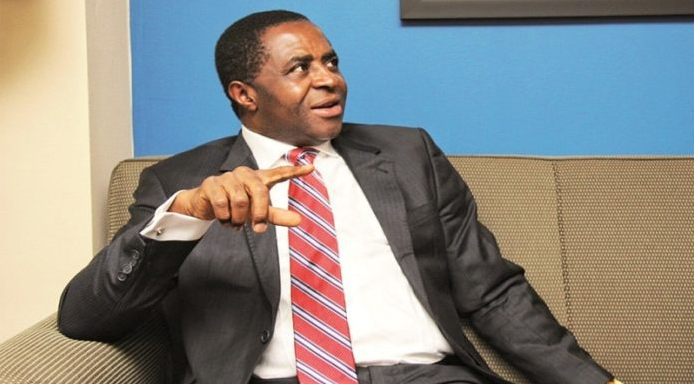Yaounde – January 5, 2018, will forever be etched in the history of Ambazonia as a day of betrayal and defiance. It was on this fateful day that Sisiku Julius Ayuk Tabe, the leader of Ambazonia’s struggle for independence, and nine of his comrades were snatched from Nera Hotel, Abuja, Nigeria. This joint operation, orchestrated by Nigerian police and Cameroonian authorities, marked the beginning of a grim chapter for these leaders.
Two weeks of silence and speculation followed their arrest until the Cameroonian government finally admitted to holding the Ambazonian leaders. What came next was nothing short of a travesty of justice. Extradited under questionable legality to Cameroon, they were dragged before a military court in Yaoundé—a court infamous for its disregard for fairness or due process.
These men, collectively known as the “Nera 10,” were charged with secession and terrorism, and accused of spearheading the declaration of Ambazonia’s independence on October 1, 2017. The verdict? Life imprisonment and a staggering fine in the billions of francs CFA. The message was clear: Cameroon would crush any semblance of resistance.
Yet, even within the confines of Kondengui prison, Sisiku Ayuk Tabe has refused to be silenced. His resolve remains unshaken, his voice undimmed. From his cell, he continues to advocate for a peaceful approach to achieving Ambazonia’s self-determination.
The arrest and imprisonment of the Nera 10 created a fracas in leadership that has since plunged the Ambazonian struggle into fractions. Ayuk Tabe behind bars, won’t relinquish leadership. He aimed at micro-managing the Interim Government he was elected leader from behind bars. Something that the free leadership opposed. He appointed Dapney Yerima as his interim successor, but infighting among separatist factions soon overshadowed the movement’s collective goals.

Figures like Ayaba Cho Lucas, Chris Anu, and Samuel Sako have emerged as leaders of rival factions, each with their own following. Instead of solidarity, the movement has been plagued by accusations of exploitation, and betrayal of the very cause they claim to champion. This fragmentation has led to tragic outcomes, including the kidnapping of civilians for ransom.
The infighting has not only weakened the independence struggle but has also provided Cameroon’s regime with a strategic advantage. Divided, the movement struggles to present a unified front, allowing the government to exploit these rifts to its benefit.
Despite the challenges, the Ambazonian struggle persists. The armed conflict, which has claimed thousands of lives and displaced hundreds of thousands since its outbreak in 2016, shows signs of shifting dynamics. Violence against civilians has lessened in frequency, and some fighters have laid down their weapons, joining Cameroon’s Disarmament, Demobilization, and Reintegration (DDR) program.
However, these developments are far from a resolution. The fight for liberation continues, fueled by the enduring spirit of a people who refuse to accept subjugation. The scars of war are evident, but so is the resolve to achieve freedom.
The Nera 10 are more than political prisoners—they are symbols of Ambazonia’s unyielding quest for justice and self-determination. As their imprisonment stretches into its seventh year, the call for their release grows louder, resonating far beyond the borders of Cameroon.
For the Ambazonian movement to succeed, unity is not just desirable—it is essential. The leadership must rise above petty rivalries and personal ambitions to refocus on the collective goal of independence. The sacrifices of the prisoners demand nothing less.
History will judge this struggle not by the might of those who sought to suppress it but by the resilience and unity of those who dared to fight for freedom. As Ambazonians reflect on the journey so far, the message is clear: the spirit of a free Ambazonia remains unbreakable.

